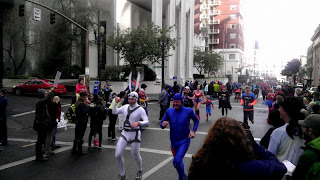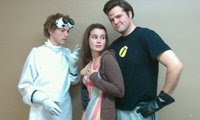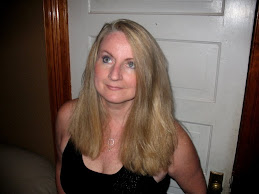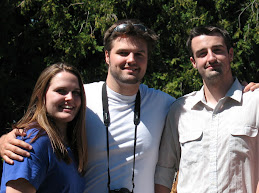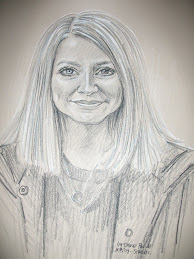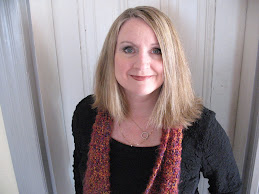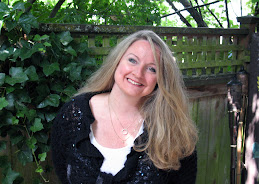First off: THANKS for taking the time to answer these questions and Gosh it’s one giant step for you and a huge leap (of hope) for writers everywhere.
1) The first question that comes to my mind for me is how many books have you had published and/or under contract?
So far I’ve been fortunate enough to have 16 of my books published. My first books were published in 2009 and my most recent books came out in 2012.
This is a real inspiration for writers, to hear success stories, especially in this economy.
2) What was your inspiration for your book(s)?
In the year 2000 I started SmallTalk Learning, a company that specializes in teaching sign language workshops to parents and caregivers of hearing infants and toddlers. Sign language builds early literacy skills and helps preverbal babies communicate before they can talk. I discovered early on that the most effective way to help people learn and remember particular signs is to teach them catchy songs they can sing and sign with while they interact with their babies. I wrote all kinds of ditties for this purpose, modeled after familiar children’s songs and rhymes like “Old MacDonald Has a Farm” and “If You’re Happy and You Know It.”
After awhile I discovered that preschoolers and elementary school children are also interested in and can benefit from sign language. I developed an interest in expanding my reach beyond that which I could manage in my own classes. I wanted to share the joyful experience of signing with children and their grown-ups across the miles, and I decided the best way to do that would be to publish a handful of my classroom songs in the form of picture books.
In the summer of 2004, I attended my first of many writing conferences, and I formed a critique group so that I could refine my writing skills, transform my classroom songs into stories, and learn about the business of publishing. After many rounds of critique, countless revisions, and heaps of submissions and rejections, I signed my first publishing contract in March of 2008. In addition to the books I have published, I now have several other books in the works that are not at all related to signing—some that are making their rounds through publisher’s slush piles and others that are still being fine-tuned.
3) Was it a difficult task finding an agent/publisher?
I do not have an agent yet—that’s one of the many things on my to-do list!
It was definitely hard work and time consuming to find the right publisher for my books. I researched diligently and submitted regularly. Happily, several editors took an interest in my work. Not-so-happily, I heard again and again that my concept was not quite right for the trade publishers I was targeting. Over time, the editorial correspondence I received shifted from form letters to personalized notes with suggestions for revision and/or ideas for other publishers that might be a better fit for my work. The message was coming through: Several of my stories were publishable; I just needed to find the right publisher.
In the end, I found my publisher through serendipity and networking.
In October 2007, I attended a presentation by David Michael Slater, who participated in an event called Book Blast at a local middle school. After listening to David’s talk and looking at his books, I was convinced that his publisher was a good fit for my work. I chatted with David (after buying a couple of his books, of course) and I told him about the books I was trying to get published (yes, I had my elevator pitch perfected at this point).
David was kind enough to put me in touch with his editor at
Abdo Publishing Group. And the rest is history, as they say.
4) Is it difficult working all alone on your projects? How do you have social interactions in the solitary world of writing?
I think it’s more accurate to say that it’s hard for me to find solitary time for writing! I have two school-aged kids who keep me busy carpooling, volunteering and cheering from the sidelines. I also run a small business that involves teaching and consulting, and I visit schools and libraries as often as I can. I like to talk nearly as much as I like to write. Socializing is not one of my challenges!
5) What one author/book inspired you as a child?
I was a Dr. Seuss kid. It’s not possible for me to name just one of his books that captured my heart as a child. I loved “Hop on Pop” and “One Fish, Two Fish, Red Fish, Blue Fish.” I also loved “The Foot Book,” “The Eye Book” and “Yertle the Turtle.” There were other, lesser-known authors, such as Al Perkins and Mike McLintock, who wrote other favorites of mine from the same Random House Beginning Book Series, such as: “The Ear Book,” “The Digging-est Dog,” “Hand, Hand, Fingers, Thumb,” and “A Fly Went By,” all of which are still on my bookshelf. The rhythm I feel in my bones when I work on a rhyming picture book exists because of these authors. These were the books that were read aloud to me over and over again as a young child, and these were the first books I was able to read independently. The author I loved most dearly as I developed into a fully independent reader was Judy Blume. You might say Dr. Seuss and his contemporaries taught me how to read, and they shaped my love for rhythm and rhyme, and Judy Blume was the reason I became a bookworm.
6) I’m curious about the process you use when writing. Could you share a little bit of how you go about actually doing the hard work of writing, ie how do you structure your days, weeks, months – writing projects?
I do not have a regular time or place that I write, but I always have one of my works-in-progress noodling around in my head. I think about it when I drive. I think about it when I fade off to sleep. I think about it as I’m waking up. It’s always there. I find that my best creative ideas arrive, and my biggest story problems work themselves out, when I’m on a walk, or a long drive, or in the shower. As a result, I have a gazillion scraps of paper with scribbled notes taped into my writing journals and stuffed into writing files. For the harder work of revision, I need longer, more solitary blocks of time.
Sometimes I sit down to write as soon as I get the kids off to school, other times I write in my parked car or at a waiting area when I’m in between carpool duties. Occasionally I write after everyone is tucked into bed. True confessions: I don’t write every day (unless you count email!). I aim to write every week, and I set weekly creative writing goals for myself. At the beginning of each week I send an email to the co-founder of my critique group to share my goals, and report on my past week’s progress. Lately I’ve been running ragged with family responsibilities, so I have to be more diligent about setting aside time to write. Once I sit down and get into the groove, I lose track of time and everything else on my to-do list gets put off for another day.
7) When did you have that ah-ha moment when you knew you wanted to be a writer?
When I was in middle school I authored a poetry book that I gave to my mom on Mother’s Day. That is my earliest recollection of considering myself a writer. In the years that followed, high school essays, college term papers, and corporate white papers gradually replaced my creative writing time. Fast-forward 20 years later to the summer of 2004, when I attended my first creative writing conference. I participated in a writing exercise facilitated by one of the faculty members, Ann Whitford Paul. She asked participants to write down the name of a past school teacher and asked us to complete the following sentence: “Mr/s. always __________________ .” I wrote down Mr. XXX always has bad breath.” I wrote several pages without stopping, and that was when I remembered how much I enjoyed creative writing, and that this interest went well beyond the signing stories that first inspired my interest in getting published.
8) Do you have a big picture plan?
I had a big-picture plan for getting my Story Time with Signs and Rhymes books published. That said, the more I learned about the publishing industry, the more I realized that my original plan was not consistent with how the industry works (or at least how it worked at the time). My professional experience included being a VP for a major financial institution and I’d run my own training and consulting business for several years, so I was accustomed to setting goals and action plans and following through.
To reach my publishing goals, I anticipated that I would need to find an illustrator whose style and strengths aligned with my project, identify a publisher I’d like to work with, build a publishing schedule and marketing plan, and then get busy with each book’s rollout. Ha!
Over time I learned that the traditional publishing industry simply does not work that way. Had I been interested in starting my own publishing company (which at one time, I considered), I could have facilitated the process I envisioned. Instead, I shifted gears and focused my attention on improving my manuscripts and researching suitable publishers, so that when I eventually found my “publisher match” I had a strong inventory of work that was ready to go.
Going forward, I have less of a formalized “big picture plan,” and more of a project-by-project plan for each of my current works- in-progress.
9) What goals have you set – i.e. selling a manuscript a year, making a certain amount of money off of an already-published book, or what?
I set personal and professional goals each year, and as I mentioned before, I set creative writing goals (action plans, really), on a weekly basis. Last year, for example, one of my goals was to start a blog (dawnprochovnic.com) that reflects my professional interests in early literacy, sign language, and writing for young children. In the coming year, I plan to experiment more with technology to expand my outreach (i.e. web-based videos, podcasts, skype visits, interactive e-books). I also plan to conduct an agent search in the coming year. I have several manuscripts that are ready to market, but I’ve been so focused on writing new stories and marketing the books that have already been published that my manuscript submission schedule has suffered. Newsflash: It’s harder to get work published if you don’t take the time to submit it!
10) What advice would you give other aspiring writers who have yet to get published?
This seems like such a trite and oft repeated response, but really the best advice I can offer others is to write. Write your stories. Write them well. Revise them. Seek objective feedback, and consider it openly. Revise again and again and again, and then let your work sit. Use this sitting time to read. Read everything in your genre that you can get your hands on. Read outside your genre. Read current books and re-read old favorites. And then, re-read the manuscripts you have sitting in the file drawer. When you can look at a work-in-progress with fresh eyes and no longer see glaring changes begging to be made, begin the work of finding the right publishing home for this piece. Rinse. Repeat.
































